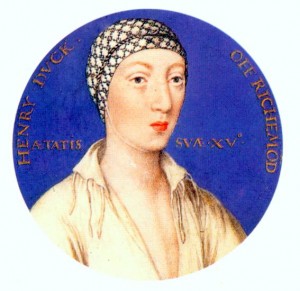
Here is an extract from my book The Fall of Anne Boleyn: A Countdown regarding what happened on this day in 1536:
While Anne Boleyn, Mark Smeaton, Sir Henry Norris, Sir Francis Weston, William Brereton, George Boleyn, Sir Richard Page and Sir Thomas Wyatt were in prison awaiting their trials, courtiers were already clamouring over the spoils that might result from the fall of grace of the former personages. These people were like vultures circling a corpse, like the Roman soldiers casting lots over Christ’s clothes. Three of these ‘vultures’ were Sir Henry Fitzroy (the Duke of Richmond and the illegitimate son of the King), landowner and lawyer Richard Staverton and Lord Lisle.
Here are three letters which show the true character of these men:
Vulture One – Arthur Plantagenet, Lord Lisle
Letter from Lord Lisle to Thomas Cromwell, 8th May 1536:
And seeing there are many things now in his gracious disposition and hands by reason of the most mischievous, heinous, and most abominable treasons against his most gracious and royal Crown and person committed, I wholly trust that his Grace, being good lord unto me, will vouchsafe to employ some part of those same upon me, which I do well know may so much the rather be obtained by your good mediation and furtherance.1
Vulture Two – Richard Staverton of Warfield, Berkshire
Richard Staverton was a lawyer and landowner who may have been related by marriage to Sir Francis Weston. He wrote to Cromwell on 2nd May, just two days after Sir Henry Norris had been detained for questioning:
It pleased you to write to me of your good will to my preferment. Various offenders have been committed to the Tower, among others Master Henry Norris, who has various rooms in the parts about me near Windsor, for which I hope you will have me in remembrance. He has the Little Park, the Park of Holy John (Foly John), Perlam (Perlaunt) Park, and the room of the Black Rod, in Windsor Castle, which I shall be glad to have, as I have 14 children.2
Vulture Three – Henry Fitzroy, Duke of Richmond
The following is a letter from the Duke of Richmond to John Longland, Bishop of Lincoln, 8th May 1536:
As the stewardship of Banbury is like shortly to be vacant in consequence of Mr. Norres’ trouble (many men thinking that there is no way but one with him,) asks the Bishop for a grant thereof under the chapter seal, that he may exercise the office by his deputy Gyles Forster, master of his horse, the bearer. London, 8 May.3
Unfortunately for Richmond, the post had already been given to Thomas Cromwell. Here is an extract from a letter from the Bishop of Lincoln to Cromwell, dated 5th May:
If it is true that Norrys has not used himself according to his duty to his sovereign lord, offers Cromwell the stewardship of the University of Oxford, if he will accept so small a fee as 5l. When the duke of Suffolk exchanged his lands in Oxfordshire with the King, he gave up the stewardship of Banbury to the behoof of Norris, on condition that in the new grant to Norris he might be joined with him for the longest liver. Advises Cromwell to ask the Duke to give up his interest in it. The fee is only 6l. 13s. 4d. Will then give Cromwell a new patent.4
This clamouring over the spoils makes you wonder if there was any chance of justice for Anne Boleyn and these men. These ‘vultures’ seemed to think that it was a done deal.
Notes and Sources
- Letters and Papers, Foreign and Domestic, Henry VIII, Volume 10 – January-June 1536, 829.
- Ibid., 791.
- Ibid., 891.
- Ibid., 804.